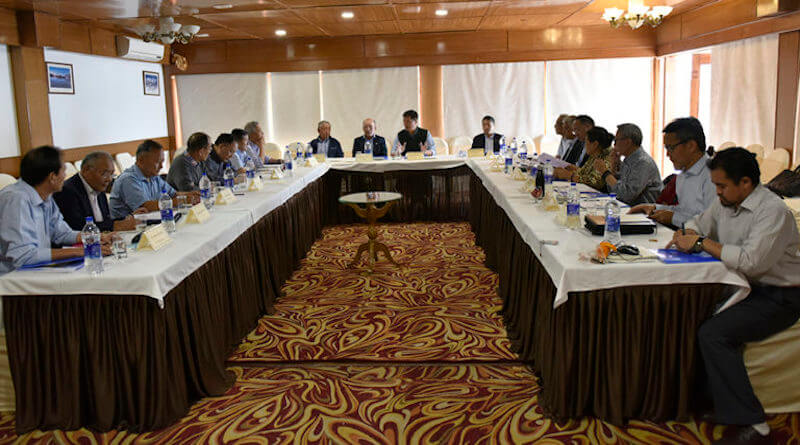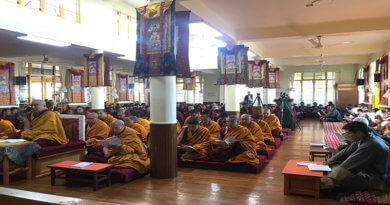30th Task Force meeting on Sino-Tibet negotiation begins in Dharamsala

DHARAMSALA, May 1: A three-day Task Force meeting on Sino-Tibetan negotiation began today at Asia Health Resort in Upper Dharamshala to discuss and review the prospects of dialogue process in the light of prevailing situation inside Tibet and China.
This is the 30th Task Force meeting since its inception in 1999 and 8th since President Lobsang Sangay, the elected head of the Tibetan people took charge of the political affairs of the Tibetan people in 2011.
President Sangay will preside over the three-day meeting wherein ideas and opinions will be brainstormed to formulate policies and strategies to find a mutually acceptable resolution to the issue of Tibet.
President Sangay in his opening remarks spoke about the rapidly developing international political scenario such as the unprecedented meeting of the leaders of South and North Korea and expressed optimism that the Tibet issue could also see a positive outcome in the future, according to a report on CTA’s official webpage Tibet.net.
Assuming that the political situation inside China could turn volatile from 2021 due to the abolition of China’s presidential term limits and other factors such as upcoming fresh leaders who could pursue more hard-line policies on the issue of Tibet, President Sangay stated that the next three-four years would be crucial for Tibet as it could determine the resumption of Sino-Tibetan dialogue or the dignified return of His Holiness the Dalai Lama to Tibet.
Nine rounds of talks were held between the envoys of His Holiness the Dalai Lama and representatives of China’s United Front Work Department since 2002.
During the course of nine rounds of Sino-Tibetan talks, the Tibetan side had presented to the Chinese leadership a Memorandum and Note seeking genuine autonomy for Tibet as enshrined in the Chinese constitution and Law on Regional National Autonomy.
The ninth and the last round of talks was held in 2010 and in 2012, the envoys of His Holiness the Dalai Lama resigned from their positions citing overall deteriorating situation inside Tibet and “lack of willingness and sincerity” from the Chinese side.





